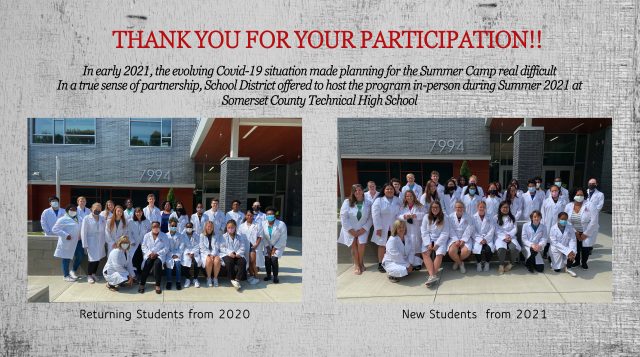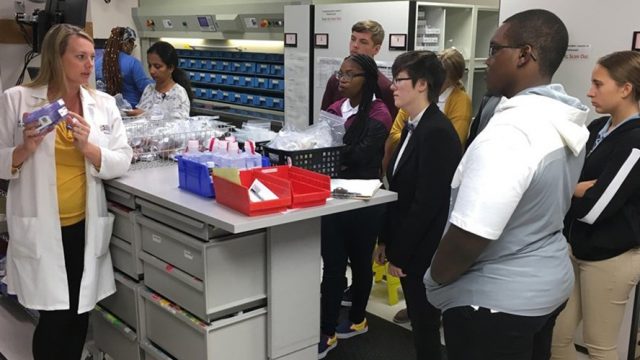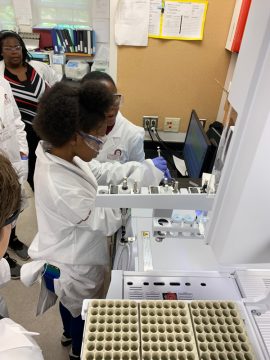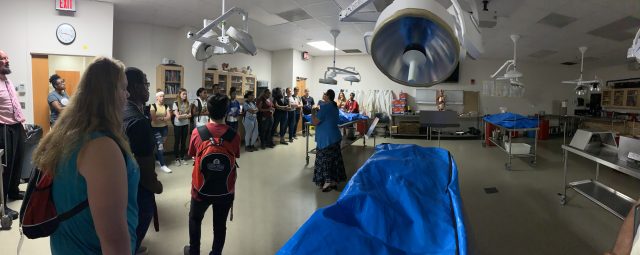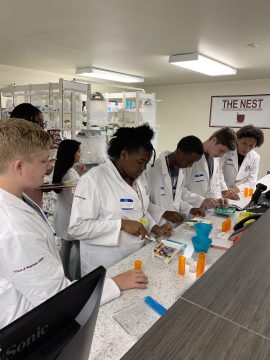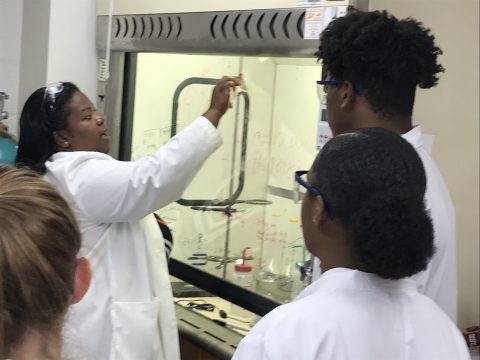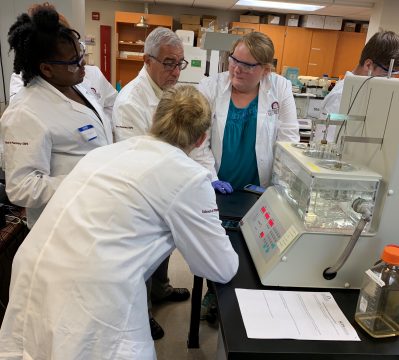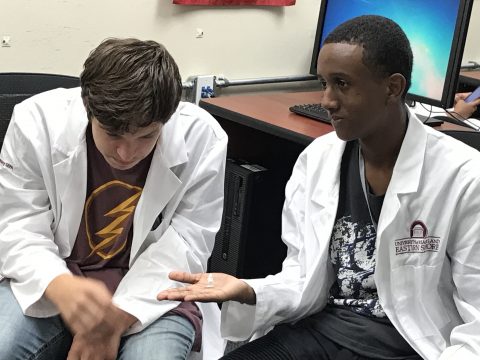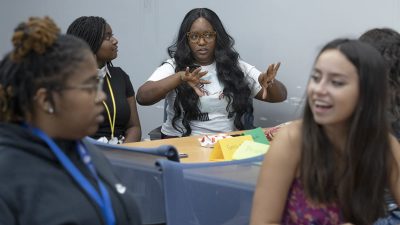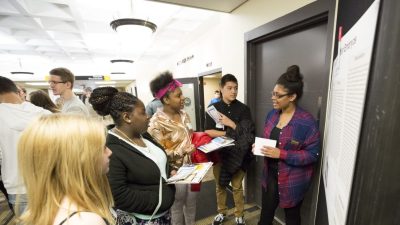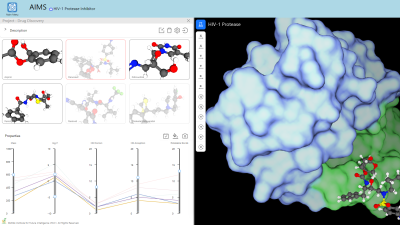Drug Discovery and Biomedical Research Training (DDBRT) Program for Underserved Minority Youth
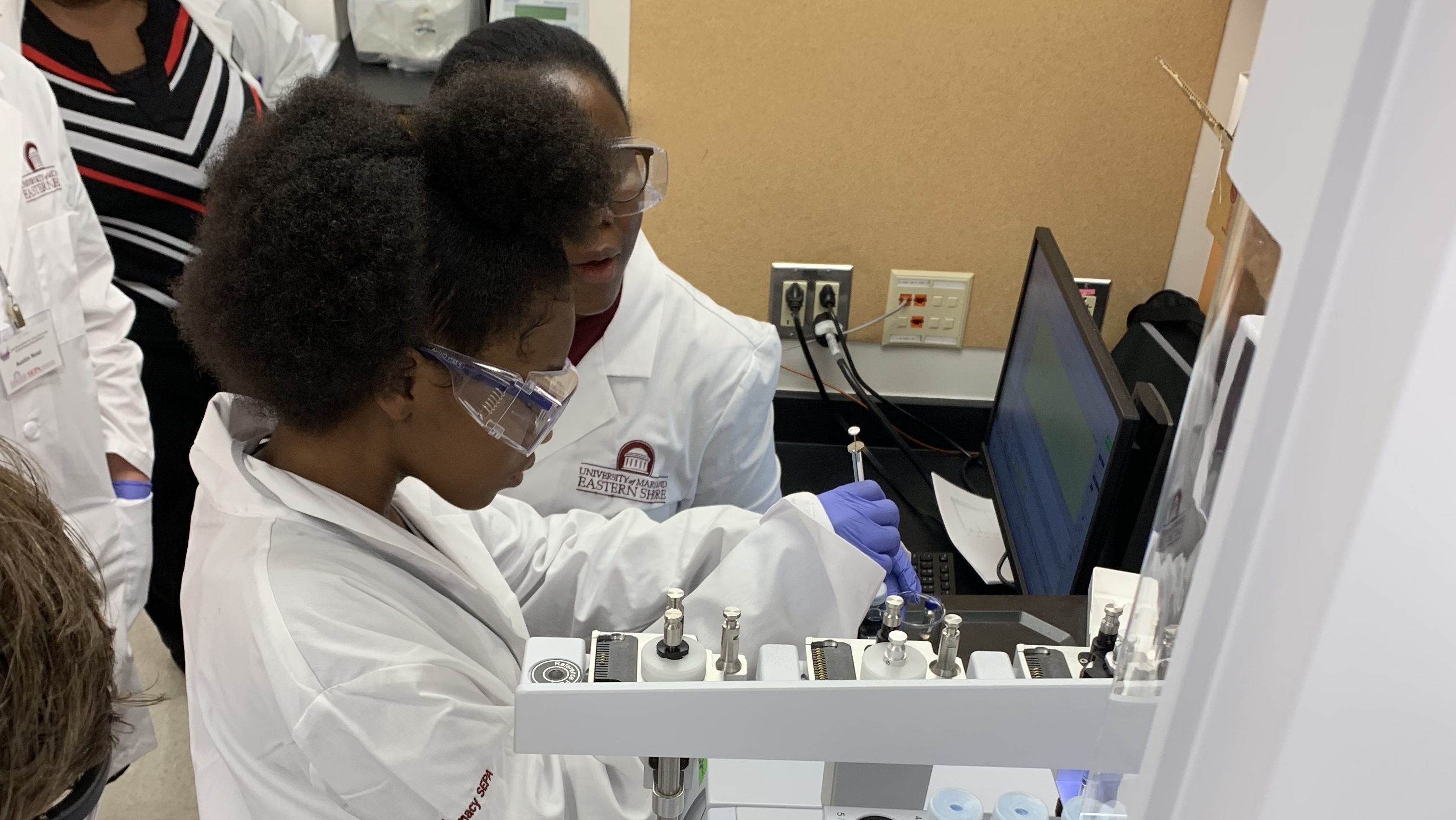
University of Maryland Eastern Shore (UMES) School of Pharmacy and High Schools
Project Website(s)
-
Project Description
The proposed program focuses on providing minority and underserved high school students with hands-on drug discovery and biomedical research training experiences that will foster their critical thinking skills, stimulate their interest and reflect positively on their attitude towards science. The program will enhance the STEM learning opportunities of these students by providing engaging hands-on modules in drug discovery and biomedical research that are integrated with the biomedical program at their schools. The program will allow for maximum interaction of the high school students with experienced scientists in biomedical/pharmaceutical research and a group of graduate students facilitating the learning in the classroom. The pharmacy graduate students will serve as near-peer mentors and provide continuing support after the end of the program to all high school student cohorts encouraging them to keep focused on moving forward with their STEM career plans and provide guidance on college readiness. The desired outcome would be to motivate the high school students interest in biomedical/pharmaceutical sciences programs, improve their chances for college entry and admission to research focused pharmacy and biomedical programs.
-
Abstract
The Drug Discovery and Biomedical Research Training (DDBRT) Program is a partnership between the University of Maryland Eastern Shore (UMES) School of Pharmacy and High Schools in Somerset County, MD, one of the most rural and underserved areas in the State of Maryland. Minority youth residing in rural areas and coming from families with a low socioeconomic status have practically no chance of experiencing the cutting-edge research methodology and tools used in drug discovery and biomedical research. Studies continue to show that students who demonstrate a strong talent and interest in STEM are most influenced by extracurricular and hands-on laboratory experiences. The primary goal of this program is to train and provide mentoring to minority youth in research methods of drug discovery and biomedical research to stimulate their interest to pursue education and careers in the applied healthcare fields and biomedical research. Partnering with science teachers from Somerset County, MD, an integrated curriculum was developed that builds on the high school biomedical program (4 courses in 10th-12th grades) and links it to drug discovery and biomedical research hands-on training modules led by experienced pharmaceutical researchers using state-of-the-art biomedical methodology on the UMES campus. Over the course of the 2-year program, the students will experience hands-on modules designed with teacher input that span the following topics: Drug design and synthesis: hitting the epilepsy target, biomarkers: what are they?, pharmaceutical compounding, opioid abuse and prevention, community pharmacy operations, hospital pharmacy operations, kinesiology, promoting healthy behaviors & disease prevention, , animal behavior, viral infection, prostate cancer, breast cancer, nanotechnology for targeted drug delivery, dosage form design by 3D-printing, formulation analysis using high performance liquid chromatography and antibiotic drug discovery research. A mentoring program that includes faculty as well as Pharm D/graduate students who are mostly minority students aims to provide a support system to these high school students. In addition to facilitating the training, the pharmacy student mentors will each be assigned a group of 6-8 high school students to follow up during and after the end of the program. The expected outcome is to provide continuing support after the end of the program to all our high school student cohorts with near-peer role models thereby encouraging them to keep focused on moving forward with the STEM career plans and provide guidance on college readiness. Overall, the expected outcome of DDBRT is to establish a participatory research program with mentoring support designed to stimulate the student’s interest in and pursuit of pharmaceutical, health-related and biomedical research careers while ultimately enhancing the diversity of the biomedical research workforce.
-
Dissemination Strategies
Website for the project: www.umes/edu/pharmacy/NIHSEPA
Project Photos
Project Audience
Underserved youth in rural Maryland Eastern Shore
Subjects Addressed
Research methods used in drug discovery and biomedical research. Students will experience hands-on labs that span the following topics: Drug design and synthesis: hitting the epilepsy target, biomarkers: what are they?, pharmaceutical compounding, opioid abuse and prevention, community pharmacy operations, hospital pharmacy operations, kinesiology, promoting healthy behaviors & disease prevention, , animal behavior, viral infection, prostate cancer, breast cancer, nanotechnology for targeted drug delivery, dosage form design by 3D-printing, formulation analysis using high performance liquid chromatography and antibiotic drug discovery research.


